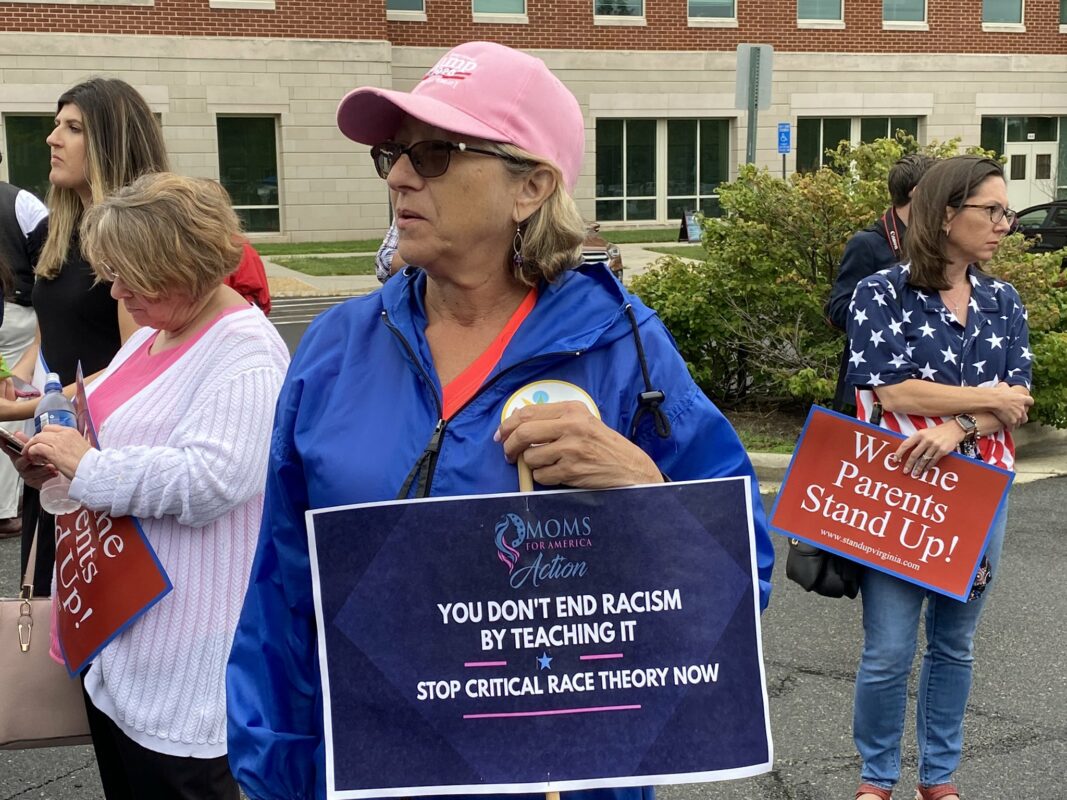A new poll confirms that when Republicans scream about critical race theory, what they really mean is they oppose the teaching of anything about racism in the U.S.
A Washington Post/ABC News poll asked respondents: “How much do you think public schools should teach about how the history of racism affects America today?” A majority of Republicans said it should be taught not so much or not at all. That’s not an objection to critical race theory even in its most expansive definition. That’s an objection to kids learning that, possibly within their parents’ lifetimes but definitely within their grandparents’ lifetimes, the U.S. had explicitly racist laws that have continuing effects today.
The Post/ABC poll follows a Monmouth University poll that asked a slightly different question: Should public schools teach the history of racism? That question didn’t ask about how the history of racism affects America today, but it still found a lot of opposition among Republicans: 43% disapproved somewhat or strongly—and in fact, 34% strongly disapproved. Of even teaching the history of racism in a country where slavery was not just legal but embraced in much of the country for more than 200 years. Where following slavery, Black people’s rights were sharply limited, including their rights to change jobs without their boss’ permission. Where Jim Crow laws prevented Black people from attending the same schools, eating in the same restaurants, living in the same neighborhoods, and drinking from the same water fountains as white people through well over half of the 20th century. Where Black people were killed for voting.
Republicans do not want children knowing that history.
In 1960, federal marshals had to escort 6-year-old Ruby Bridges to school every day because as the first Black child going to the all-white William Frantz Elementary School, she had to walk past crowds of angry white people screaming slurs at her. Bridges is now just 67 years old, highlighting how close in the past that time is, and how its effects cannot have disappeared, because the people who lived it—not just Bridges, but the white children whose parents pulled them out of school rather than attend with a single Black child—are still here.
Children’s books about Bridges’ own childhood experience are among those Republicans are trying to ban in some places. Critical race theory? No, we’re talking about books with simple declarative sentences noting that some white people didn’t want Black children going to school with white children, but the government said Ruby Bridges should be allowed to, and she did, and now Black children and white children go to school together and it is a good thing. That is the kind of content at the center of some “critical race theory” fights.
But of course while there’s tons of organic, deeply felt racism at work here, there’s also a top-down campaign. Fox News issued its marching orders in the spring with a big focus on the alleged teaching of critical race theory in K-12 public schools, while CRT scandal mastermind Christopher Rufo, a Republican think tank guy, bragged that he was manufacturing the controversy, writing: “The goal is to have the public read something crazy in the newspaper and immediately think ‘critical race theory.’ We have decodified the term and will recodify it to annex the entire range of cultural constructions that are unpopular with Americans.” This is code where “cultural constructions that are unpopular with Americans” means “teaching things about racism that make Republicans uncomfortable,” but close enough.
After a big burst of critical race theory coverage in spring 2021, Fox News let the issue die down. Then it produced another surge on the topic in the fall, which—guess what—died down immediately after the Virginia elections:
Just like the migrant caravan, CRT may become an election news cycle event. https://t.co/kgpeqeZc3W
— Molly Jong-Fast (@MollyJongFast) November 16, 2021
Democrats need to be willing and able to answer this with some blunt truths: It’s not about critical race theory. Whether that is or isn’t taught in K-12 schools (it isn’t), what Republicans are really opposed to is any teaching about the history of racism in the U.S. and especially how that history affects the nation today. They are opposed to the teaching of things that happened to children just 60 years ago.
And Democrats need to be willing and able to confront the reality of media asymmetry, where Republicans have a huge partisan noise machine blasting out talking points while Democrats sit around hoping the traditional media will cover things factually. “Until we have an apparatus on the same scale that the Right does we’ll always be behind in both communicating with voters directly and influencing traditional media coverage,” Melissa Ryan, a Democratic strategist who focuses on extremism and disinformation, wrote recently. “We need to nationalize and scale lefty media with the same energy we’ve spent nationalizing campaigns and political organizations.”
That doesn’t mean copying the right-wing media’s propensity to lie, she stressed. “I’m not talking about propaganda, false news, or outrage for outrage’s sake. I don’t think we need to replicate their culture war mentality, nor would it work if the left tried. We do need to offer an alternative vision, and we need vehicles to communicate that vision.” And those vehicles need to be funded and they need to be treated with the seriousness that Republicans treat Fox News and OAN and a raft of Republican pundits and publications, rather than being sidelined as not serious enough in favor of Democrats begging The New York Times and CNN, yet again, to cover the reality of how extreme Republicans have become and the widespread popularity of the policies Democrats are trying to pass.
Otherwise it’s going to be a constant rinse and repeat of Republicans whipping up a culture war just in time for an election, their base getting the message, and Democrats failing at pushback. That puts the United States in a very scary place within not very many more years at all.
